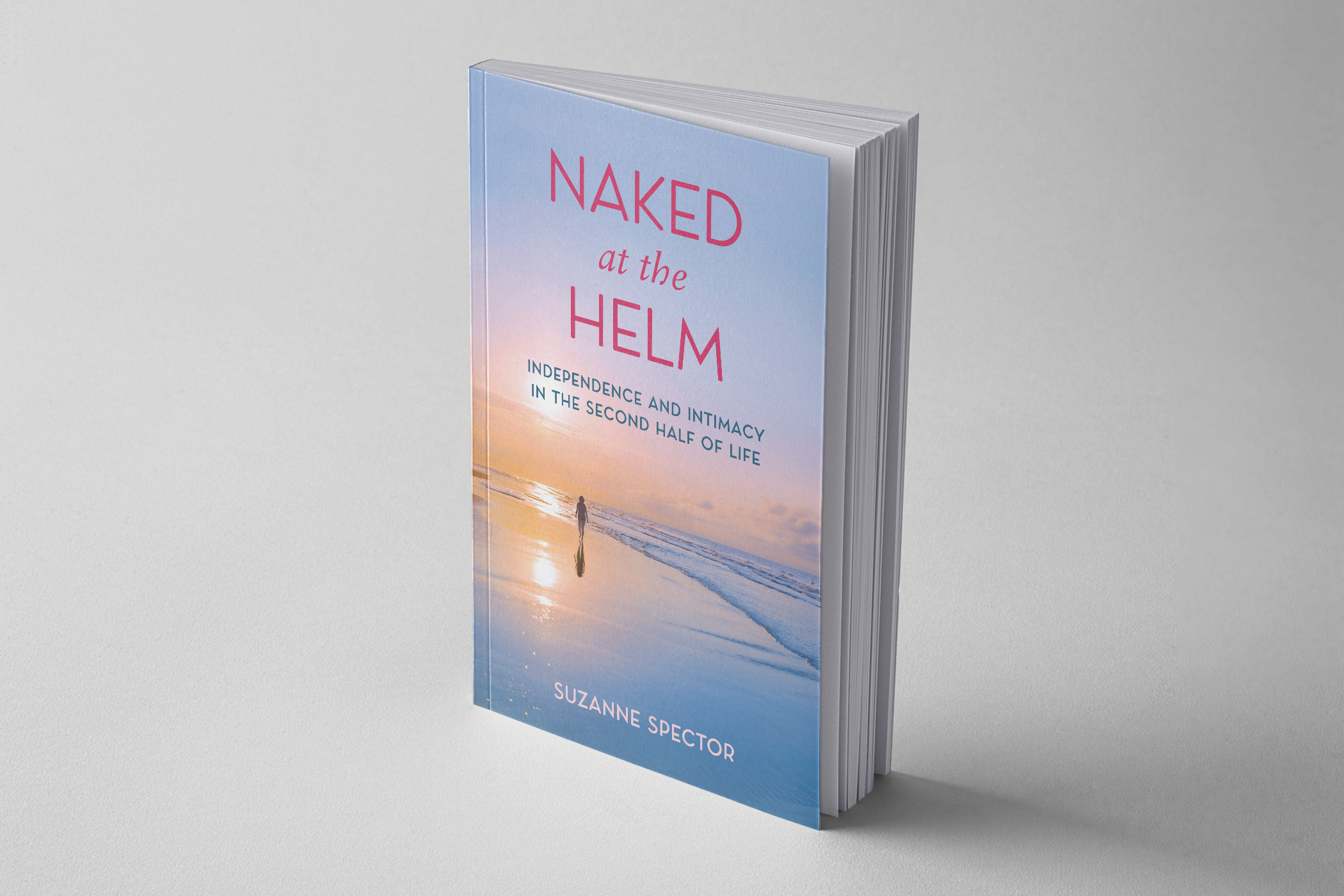
An Octogenarian’s Memoir of Wild Midlife Reinvention
When Suzanne Spector was forty, she stripped off the bonds of marriage, career and conventional suburban life, and instead embarked on a voyage of self-discovery that took her to unfamiliar places (a nude beach in Ibizia, a Siberian dacha) and allowed her to make new and meaningful connections with lovers and friends. At 86 and still going strong, she talks to Fiction Editor Yona Zeldis McDonough about her journey and what she’s learned along the way.
YZM: Can you talk about your spiritual journey and how it was informed by your Jewish roots?
SS: Little did I know when I agreed to be the first girl in our Reform congregation to be Bat Mitzvah back in 1949, that this seed of connection to spirituality would blossom into leadership roles in promoting self-expression and empathic connection through the next seven decades of my life.
My Bat Mitzvah was followed by the first intellectually engaging experience of my life in a yearlong confirmation class in which we pondered the big questions: What is God? Could evolution have happened by chance? And how could God allow the Holocaust? We used a published text written by our wonderful Rabbi, Roland Gittlelsohn. In addition to being my intellectual and spiritual mentor, the rabbi was active with my father in UJA and B’nai Brith’s ADL — and he loved my mother’s gefilte fish. She always made extra for him at Rosh Hashana and Passover.
The trail blazer I was as a Bat Mitzvah girl went into hiding as a teenager, then reappeared as a young mother who created an innovative school that promoted student-centered learning. A second career in psychology led to an international life with fascinating work, close friendships and wonderful travels, as I lived out the deep sense of connection kindled with the sabbath candles.
My memoir is a story of a Jewish woman’s identity being shaped by custom-breaking leadership, gender equality, provocative inquiry and self-examination and a strong sense of community.
YZM: Do you think our capacity for intimacy grows as we get older?
SS: Certainly mine did. My capacity for intimacy was also impacted by the era of the women’s movement and the burgeoning fields of humanistic education and psychology. My generation and those before were not raised to be open about expressing our feelings, wants and needs. The more we do that and make it safe for others to do the same in our relationships, the more intimacy develops.
YZM: You’ve devoted a lot of time to the subject of female friendship.
SS: My parents’ generation believed you were not okay unless you were married. When I divorced, my parents were scared that I wouldn’t be taken care of because I didn’t have a man in my life. They lived long enough to see how well I could take care of myself and how well I was supported by close women friends.
I just met with a book club of mostly Jewish women who were a decade or two younger than I, all in long term marriages. They made it very clear that they went to their women friends, not their husbands, for understanding and intimacy. Female connection is important to women regardless of whether they are married.
YZM: What would you say to a woman who feels it’s too late to change or that life has passed her by?
SS: I would tell her that when I look back over my life, I see that little steps made all the difference. I never foresaw the marvelous outcomes that eventually developed from each step. I might tell her that when I took my first writing class at the local adult school at age 77, I had no idea where it would lead. I wanted to write to find the threads in my life and see how they interwove into my story. Now here I am at 86 being interviewed my Lilith about my debut book. It’s never too late to be happy, and happiness comes from exploring your passions.
YZM: Naked at the Helm is a striking image; what does it mean to you and why did you choose it as the title of your memoir?
SS: Naked isn’t only about getting comfortable in my own skin and embracing that, lumps, bumps, and bruises. It’s about stripping off old roles and prescriptions imposed by others, by the culture or myself. At the Helm is about being the captain of my own ship, taking responsibility for its course. In my late forties I had a boyfriend who invited me to be a passenger in his life, on the back of his motorcycle and the bunk of his sailboat. I didn’t know when I chose that relationship that it would lead me to discover that I wanted to be captain of my own ship, but I’ve been a happy single woman ever since, deeply connected to my family, my friends and myself. It has been a deeply spiritual journey.



